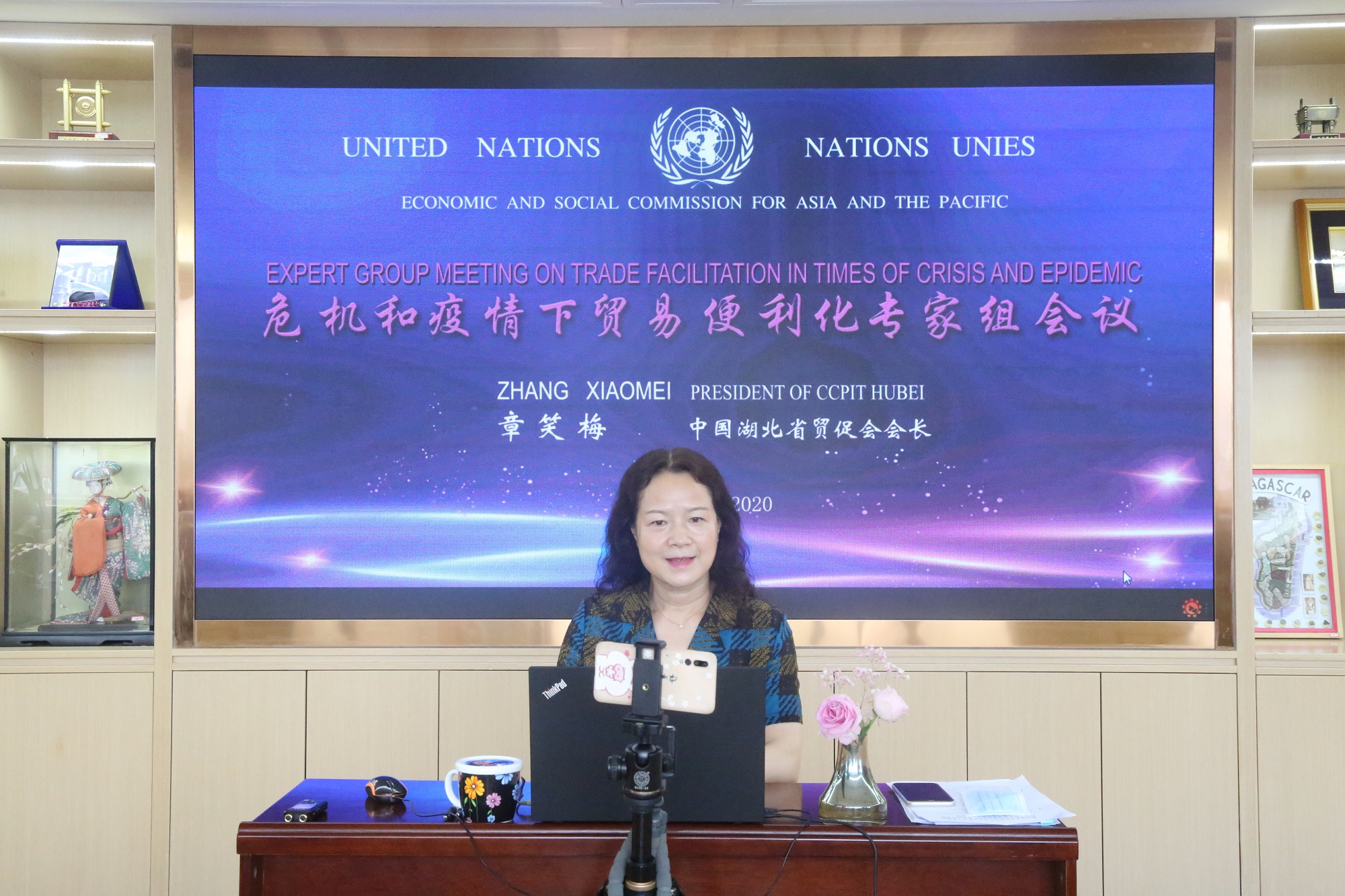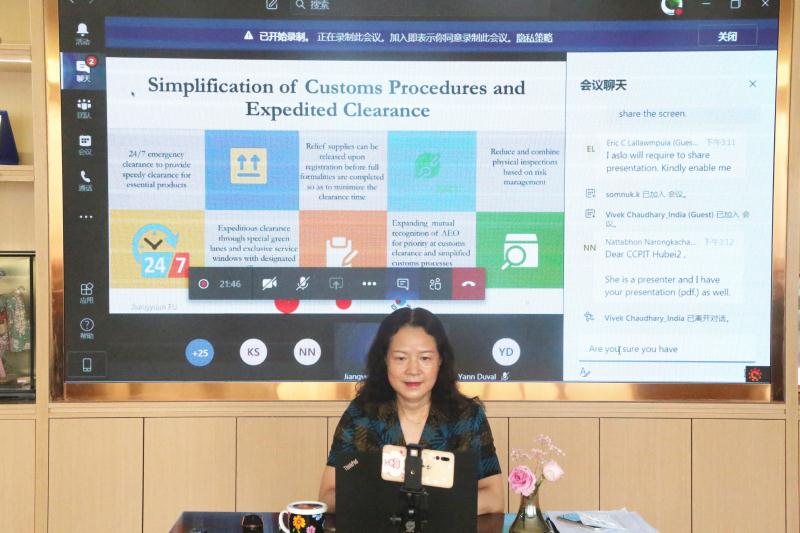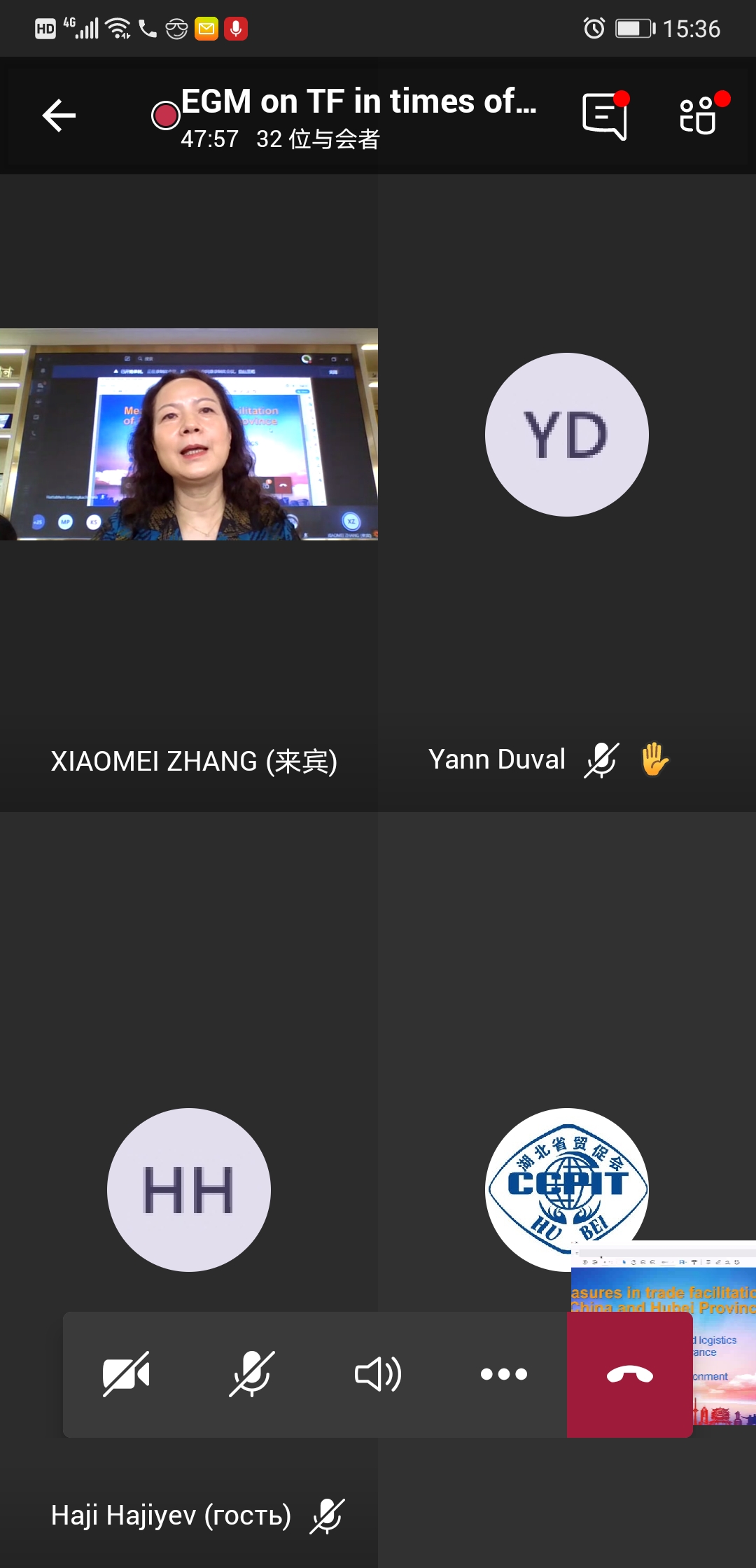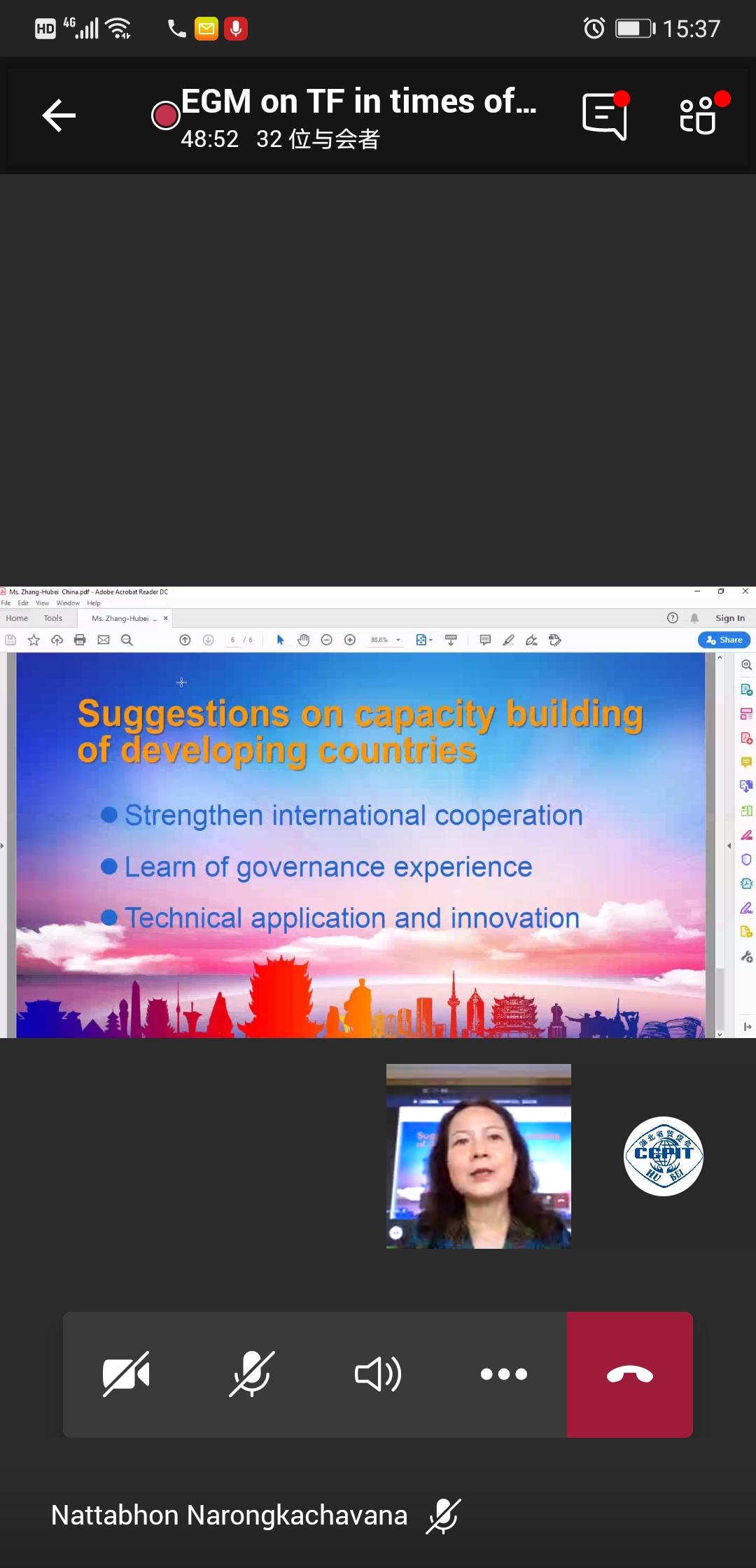To review good practices in trade facilitation implemented by Asian and the Pacific countries in response to COVID-19, enhance resilience on global value chain and help developing countries with capacity building, ESCAP has organized its first Expert Group Meeting on Trade Facilitation in Times of Crisis and Epidemic (Virtual Meeting) from July 29 to July 30. President Zhang Xiaomei of China Council for the Promotion of International Trade, Hubei Sub-council was invited to the meeting as the only guest in East and Northeast Asia and shared experiences of China and Hubei Province in trade facilitation.
The meeting started at 2 p.m. Bangkoktime, 3 p.m. Beijingtime. Speakers for East and Northeast Asia, North and Central Asia, Southeast Asia and South and Southwest Asia made presentations. Officials from UNCTAD, ECA, ECE, ECLAC and ESCWA and experts from countries such as Kazakhstan, Singapore and Bangladesh listened carefully to draft studies and made professional comments and supplements. Participants discussed and interacted on how temporary ad-hoc measures may be converted into long-term TF measures and capacity building needs of developing countries for social governance and crisis response.
Ms. Zhang first expressed her appreciation to UN for their efforts in organizing this meeting and its contribution to promoting solidarity in joint response to the pandemic, addressing difficulties in business and trade and deepening exchanges and cooperation in Asia Pacific region. Then she commented on draft study of Trade Facilitation in Times of Pandemic-Best Practices in East and Northeast Asia (ENEA) and introduced in details measures and achievements of China and Hubei Province in fighting the epidemic as well as practices in trade facilitation such as coordination mechanism, smooth transport and logistics, convenient customs clearance, financial support and optimization of business environment.Suggestions were made on strengthening international cooperation, learning from governance experience and improving technical application and innovation for developing countries to improve capacity for social governance. She put that with wider opening-up, deeper reform and high-quality development, fundamentals of Hubei’s sound economic development in long term remain unchanged, its comprehensive strengths accumulated all these years remain unchanged and its important position in national and regional development remains unchanged. Hubei has become more attractive for investment.
Zhang had in-depth exchanges with other participants in discussion and way forward session. All parties at the meeting showed great interests in China’s speed and efficiency in responding to crisis. Some developing countries hold that measures and experiences gained by China and Hubei Province in tackling crisis and epidemic are important lessons to learn from.
Zhang emphasized that mankind is a community with a shared future and win-win cooperation is the order of the day. In spite of grave difficulties and challenges, we need to turn crisis into opportunities. In times of the crisis and epidemic, countries should not only solve their own problems, but also need to strengthen cooperation and help each other. Only then, will we claim final victory over the virus, prevail over challenges and together create a brighter future!
The Economic and Social Commission for Asia and the Pacific (ESCAP) serves as the United Nations’ regional hub promoting cooperation among countries to achieve inclusive and sustainable development. ESCAP has emerged as a strong regional think-tank offering countries sound analytical products that shed insight into the evolving economic, social and environmental dynamics of the region. The overall objective of ESCAP is to promote inclusive and sustainable economic and social development in the Asia-Pacific region, with priority accorded to the implementation of the 2030 Agenda for Sustainable Development and the achievement of the Sustainable Development Goals.







